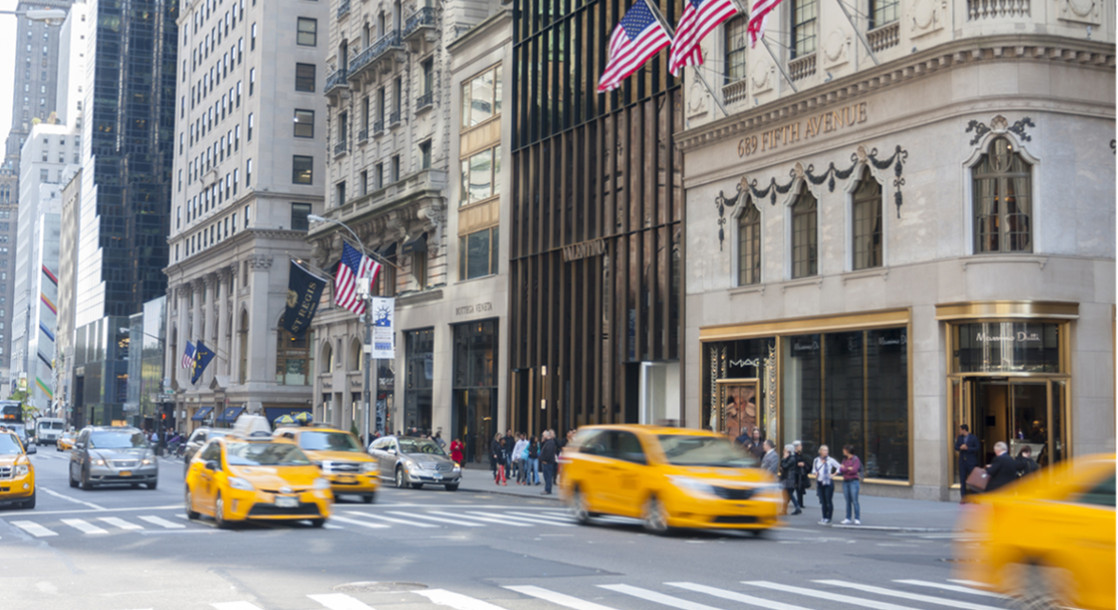In a bold move positioning the national cannabis dispensary chain as the "Barneys of weed," MedMen opened a new branch on Manhattan's upscale Fifth Avenue on 4/20 last week. But amid the fanfare over the medical marijuana shop (New York has yet to legalize adult-use cannabis), some activists say that MedMen, with its far-reaching influence and corporate legitimacy, doesn't go far enough to address issues of inequity that continue to plague the cannabis industry.
Zamari Graham-Smith, whose background is in fashion wholesale, is spearheading the movement to demand that MedMen apply a higher standard of social justice to its business platform.
"A friend of mine brought to my attention an article she saw online about MedMen opening on Fifth Avenue. The headline was that it was the Barneys of dispensaries, and I couldn't help but notice the elephant in the room," Graham-Smith says. "Young black males are sitting in jails across the country for marijuana possession or distribution, and my thinking was that there's an opportunity here for MedMen to lead by example by putting social justice into action."
She drafted a letter to MedMen, and via social media solicited her peers to sign on and then all send the same letter to the company's communications, business, and customer service email addresses. "The letter is to call MedMen's attention to the disparity of black males doing time during the liberalization of marijuana," Graham-Smith says. "Meanwhile, those who have higher socioeconomic statuses and income can skip down Fifth Avenue, buy marijuana products, and bypass jail?"
Copy of Zamari Graham-Smith's letter; courtesy Graham-Smith
"People of color make up the bulk of citizens arrested in New York City for marijuana possession, despite surveys showing that whites and blacks use marijuana at roughly equal rates," the letter reads. "This presents an incredible opportunity for MedMen to become pioneers and the leaders of example for marijuana dispensaries through acts of cohesion, diversity, and inclusion."
The letter suggests two direct ways MedMen can put social justice into action:
-
Adopt a gross margin contribution model for an ongoing or limited period of time towards a bail reform initiative such as Liberty & Justice or Bronx Freedom Fund
-
Commit to diverse and inclusive hiring practices (including people with prior marijuana convictions)
"People who have these black marks on their name, these marijuana convictions — it ruins their lives," says Graham-Smith. "They've not been able to gain employment. Now, they should be encouraged to legitimise their black market experience by highlighting it on their resumes and CV's." The idea is that companies like MedMen should see that as a bonus when considering job applicants.
"The industry wouldn't be valued as the multibillion dollar industry it is today if it weren't for the diligence of those people who turned a street corner hustle into mass distribution," she says. "All whilst being up against unregulated high competition and the racial profiling of the law. Dispensaries like MedMen would be foolish to ignore that kind of business acumen.”
While MedMen hasn't yet made public their official response to Graham-Smith's movement, the company takes a sympathetic position to the points made in her letter.
"Speaking of [policing] disparity in minority communities, young men of color disproportionately impacted by the War on Drugs, that's a well-known fact, and that's why the end of prohibition will ultimately be the solution for that particular issue," says Daniel Yi, vice president of corporate communications at MedMen. "On that note, MedMen has been one of the biggest supporters of legalization efforts to change laws at the state and federal level." One example of that has been MedMen's donation of $600,000, or one percent of the company's first private equity fund, toward efforts to decriminalize and legalize marijuana. Most of that money went to the Marijuana Policy Project, says Yi.
MedMen also partnered with the Drug Policy Alliance to contribute to four expungement clinics this year, helping those with marijuana convictions reduce or erase their records in post-legalization California. "The most effective way to end prohibition is to make [cannabis] legal, and it aligns with us as a business entity," says Yi. "No one should go to jail for marijuana possession."
As far as equity in hiring, Yi says he invites anyone to step into a MedMen store and observe their diverse staff firsthand. "Check out our headquarters here in L.A.; see the diversity of gender, race, and backgrounds here in our headquarters," he says. "I think we're addressing those issues. They bring up important points, and I agree with them."
Controversy aside, New York's cannabis community is excited to welcome MedMen to Manhattan. "This is historic," says Michael Zaytsev, founder of cannabis meetup group High NY. "It's a sign of progress for the industry. However, there will be much more to celebrate when more patients can access quality [cannabis] medicine at reasonable prices. I invite MedMen to join High NY in advocacy efforts aimed at expanding New York's medical marijuana program."
Manhattan Assemblymember Dick Gottfried, chair of the New York State Assembly Committee on Health and Assembly sponsor of New York's medical marijuana law, advocates for a comprehensive legal model altogether. “We need to move beyond the outdated and broken marijuana prohibition model to a sensible tax-and-regulate system," he says. "But that’s only part of the solution. Even in states with legal adult marijuana use, there is still evidence of unequal law enforcement practices targeting minority communities. We must ensure that those most victimized by the criminalization of marijuana benefit from the social and political progress around the issue, including reforming criminal justice processes and ensuring widespread participation in the marijuana business boom."













